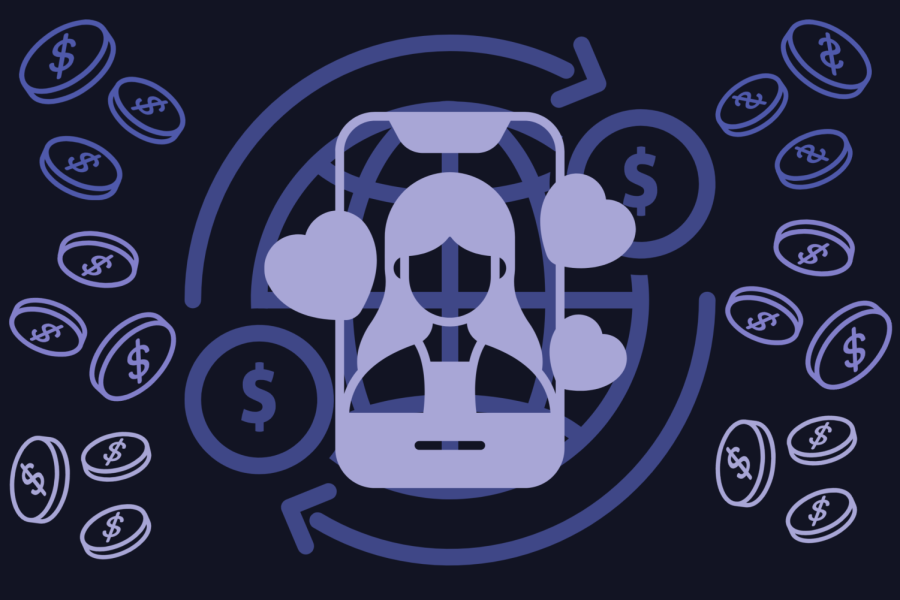How influencers affect the economy
Image used with permission by Adobe Creative Cloud.
Influencers are a large part of today’s market, in fact 31% of respondents purchase products or services just because they were seen in an influencers post.
May 19, 2023
In recent years, consumerism has hit an all time high and continues to spike as the abundant purchase of goods has become widely normalized. Some may say it is just due to the wide availability and accessibility of goods, while others may mention the recent uproar of popular influence.
Influencers are characterized as a person with a large following, perhaps even at a celebrity level, that attracts consumers or has relationships with certain brands. Influencers gain their influence through outlets like social media and advertisements while taking into consideration the quality of their posts and what information they provide. The type of content that seems to get the most interaction are videos, especially with sound. Influencers must engage with their audience with authenticity and personalization to gain trust from the people on their platforms.
When translating this information to sales, 31% of respondents purchase products or services seen in an influencers post, and about half of full populations consider making a purchase due to influence, according to Social Native. It is important to follow the changes in the economy.
The United Nations University states “When economies grow, states can tax that revenue and gain the capacity and resources needed to provide the public goods and services that their citizens need, like healthcare, education, social protection and basic public services.”
According to the Influencer Marketing Hub, the influencer marketing industry is valued at $16.4 billion. Sponsored posts are usually judged by followers, the more follower engagement the more money an influencer can make. Influencers have the ability to make a brand appealing with engaging content to encourage successful sales. The more purchases, the more money that comes into a brand and therefore the more successful the entire brand becomes. For an influencer to bring success to a certain brand there are many factors to consider: the face value of the influencer, consumer behaviors and relevancy. If the influencer chosen for the brand is not known for anything that has to do with the demographic, that may challenge the relevancy of the campaign. Along with if the influencer is known enough to make a difference on sales and connect with an exceptional audience.
Brands and companies contribute significantly to the process of adaptation and growth, which is crucial to a competitive economy. The more successful the brand the more prominent it will be in the economy’s changes. Currently, consumerism goes hand in hand with influencer marketing, putting the economy in a good place. In opposition to a recession, which is actually predicted to happen not too far after the current late cycle expansion phase we are in right now.
Influencers can be predicted to be a key way to boost the economy in these situations, such as recession, in order to recover after large damaging events. This can be seen historically in situations like the Great Depression. Around this time the term “keeping up with the Joneses” started to surface, meaning wanting something just because others have it, whether it be neighbors, friends and especially in this case influential people. People wanted all of the latest inventions which meant businesses needed to make more. Increasing production of consumer goods at the time led to the need for more workers, the demand for workers meant higher wages, which many people benefited from. As a result, consumer spending also increased, which benefited businesses and brought the economy out of a recession.
Influencers are a primary way to benefit businesses, especially in this generation of consumerism. Influence will play a key role in the economy from here on and it is essential to the success of our financial system in the future.








